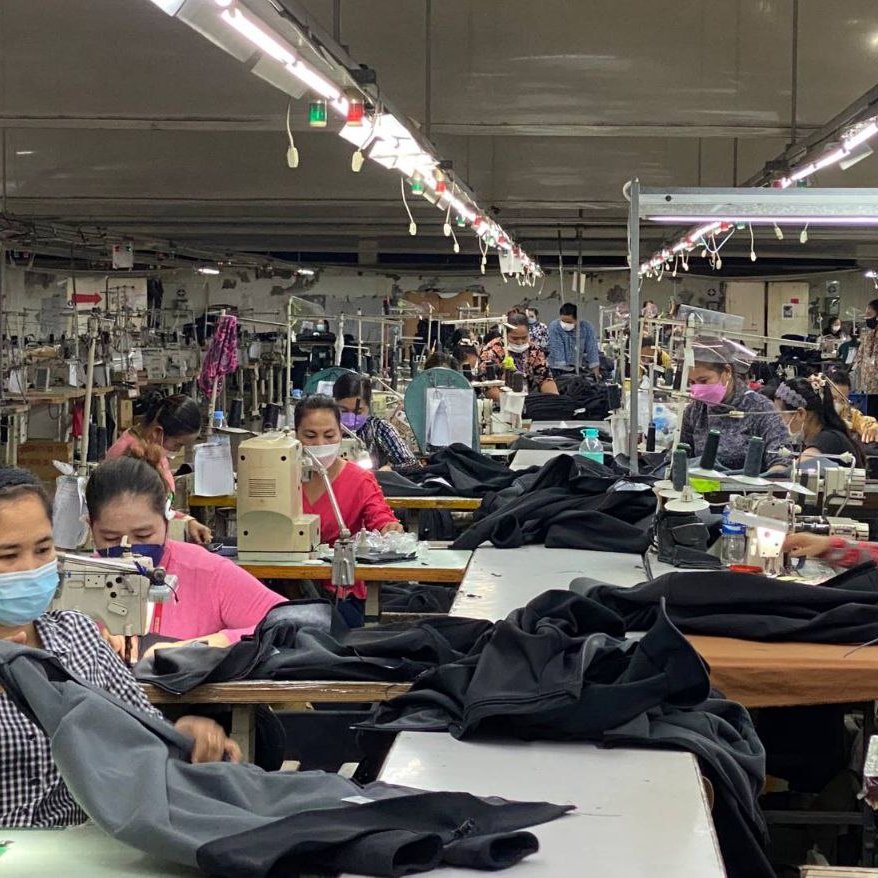Asian garment labour movement identifies urgent shifts to redistribute profits & regulate global garment supply chains

Asia Floor Wage Alliance
Global garment supply chains are engineered by fashion brands to maximise corporate profits and minimise labour and environmental costs and responsibilities. Export-oriented garment production assumes ‘cheap labour’ as a given, and workers’ lives are devalued through both unequal power relations between the Global North and Global South, as well as pre-existing social differences (e.g., gender, migrant status, religion, caste) that are exploited and accentuated by the predatory purchasing practices of fashion brands. Just as suppliers in production countries get locked into low value-adding activities in garment global supply chains (GSCs) and states lose out on tax revenues limiting public spending, workers are paid poverty-level wages and become trapped in intergenerational poverty.
These structural and systemic inequalities have enabled fashion brands to cancel orders, withhold payments for goods already produced and demand deep discounts from suppliers at the outset of the pandemic, precipitating a massive wage theft amounting to an estimated USD 157 million in 2020 alone. The ripple effects from this were experienced as a seismic shock in the Asian garment industry, with several factories closing down temporarily or permanently. These costs were disproportionately borne by workers (most often women) who were left without access to wages and consequently could not meet the costs of food, shelter, healthcare or education for their children. Employment relations became even more informal and working conditions deteriorated, with workers reporting occupational and health risks, including gender-based violence and harassment. Workers were pushed below the poverty line and forced to borrow large amounts just to maintain their subsistence levels of consumption.
Towards redistribution of profits and regulation of garment GSCs
The Asian garment labour movement has identified five urgent structural shifts necessary to address these systemic inequalities and avert future crises of such magnitude.
- Brands must move away from a fast-fashion model of garment production which results in poverty-level wages, overproduction, over-consumption, massive wastage, high production targets for workers and violence at the workplace. The primary reason why clothes are so cheap in the Global North is because workers are extremely underpaid in the Global South. There needs to be a global readjustment towards higher product pricing in garment GSCs that reflects the actual cost of production – which include living wages, employment security, safe workplace conditions and adequate social protection – coupled with adequate mechanisms to ensure the benefits of this transition are shared with suppliers and workers.
- Brands must make legally binding commitments to close the gaps between the living wage and the country-specific statutory minimum wage suppliers are responsible for. The Wage Forward Campaign for Enforceable and Binding Agreements on Living Wages provides a blueprint on how this is practical and necessary for any meaningful change in the industry.
- Fashion brands must contribute to public spending on workers’ welfare and social security in production countries. This would be a small practical step towards mitigating the adverse consequences of tax competition that have left developing countries financially vulnerable during times of crisis.
- Brands need to be held legally liable at the national level in production countries as joint employers of workers. The current arrangement of brands presenting themselves as ‘buyers’ of apparel obfuscates their role in setting the terms and conditions of employment and the volume and intensity of production. Garment workers and their unions have demonstrated how existing labour protective legislations in Asian countries can be used to regulate garment GSCs in production countries.
- Fashion brands must be held legally liable for human rights violations. Civil society organisations, like the Global Campaign to Dismantle Corporate Power and End Impunity, are pushing states to provide for the civil, administrative and criminal liability of TNCs established in their territory, regardless of the place where they have caused or contributed to the violations through their GSCs.
'Business as usual' should not continue
While there are clear demands to advance of workers’ rights and protection, the persistent challenge lies in how these issues are being ignored at the various fora that continue to uphold a flawed international trade regime and the primacy of corporate interests. For instance, both the WTO’s Global Supply Chain Forum held in March 2022 and the World Economic Forum held last month focused on strengthening the resilience and transparency of supply chains - but did not advance a concrete agenda for paying living wages and improving workers’ rights.
Even as the public and private sectors converge on such positions on different platforms, it is essential to re-emphasise the fundamental ideology of promoting free trade based on the comparative advantage of cheapened labour precipitated the deprivation of workers in GSCs, particularly during the pandemic. A blind commitment to protecting profits and the chimera of a free trade regime must be abandoned for a system that respects the dignity and humanity of millions of workers.
By Ashley Saxby, Southeast Asia coordinator for Asia Floor Wage Alliance; Aabid Firdausi, PhD student in the Department of Sociology, Johns Hopkins University; Anusha Lall, Ph.D., Regional Programme Coordinator for Focus on the Global South; Kheetanat Wannaboworn, Thailand Programme Officer, Focus on the Global South.